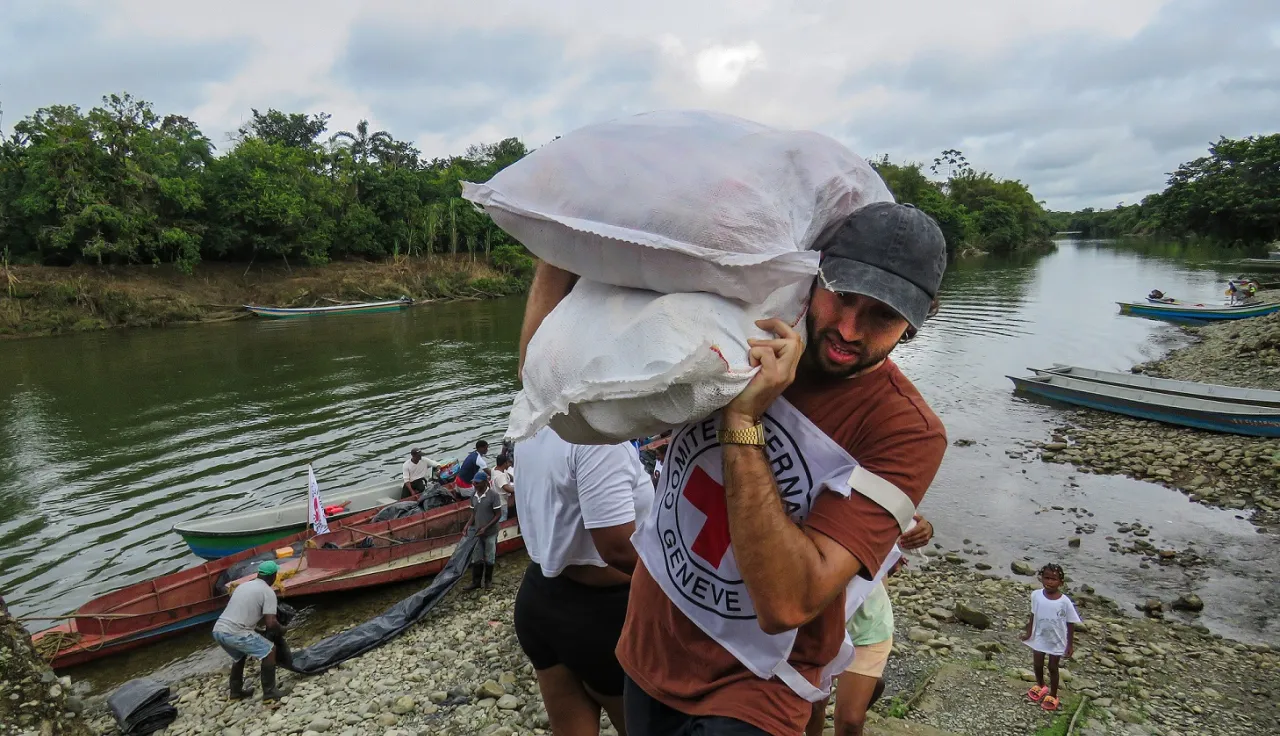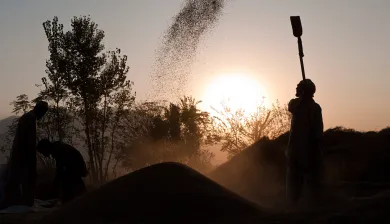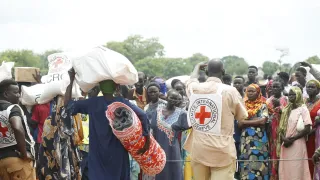Conflict drives food insecurity
During armed conflict, civilians cannot survive for long without food and water. And yet, conflict drives food insecurity as a result of how warring parties wage their battles and the disruption and degradation of food systems.
Starving civilians as a method of warfare is absolutely prohibited under international humanitarian law (IHL). In this regard, IHL sets out a non-exhaustive list of "objects indispensable to the survival of the civilian population" which benefit from heightened protection: foodstuffs, agricultural areas, crops, livestock, drinking water installations and supplies, and irrigation works. It is prohibited to attack, destroy, remove or otherwise render useless these objects except for in very exceptional circumstances.








